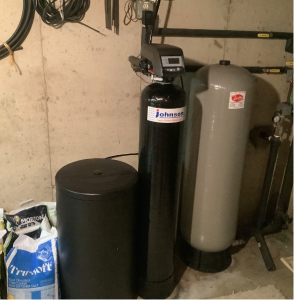How Do Water Softeners Work? Insights from a Pentair Water Softening Company in Woodridge, Illinois

Are you curious about how a water softener truly works? If so, you are certainly not alone. Below, this Pentair water softening company in Woodridge, Illinois, is going to explain the water softening process, and why you may want to consider investing in a new water softener for your home.
How do water softeners change hard water into soft water?
Hard water is rich in calcium and magnesium, and these minerals are no good for your home’s plumbing, appliances, and even your skin and hair. When these minerals build up, they can cause issues like soap scum, and water spots on your dishes and can make your water heater less efficient. All of this can lead to higher energy bills, more repairs for your appliances, and extra time spent cleaning.
A water softener removes minerals like calcium and magnesium from your water, making it “softer.” Soft water is easier on your skin and your appliances. So, if you want to improve the quality of your water in your home, consider getting a water softener installed by a Pentair water softening company in Woodridge, Illinois.
The main part of a water softener is a tank filled with resin beads. When hard water enters your home, it flows through this resin tank. The beads grab onto the minerals that make the water hard, like calcium and magnesium. As the water flows through, it gets softened, and then it comes out ready for you to use around the house.
This whole process is automatic, so your water is softened before it even reaches your taps. This means you will have cleaner water in every faucet, shower, and appliance. A Pentair water softening company in Woodridge, Illinois can help you install a system that works efficiently to keep hard water away.
The purpose of salt in water softeners
Many people believe that salt is what softens the water, but that is not true. The salt in a water softener facilitates the regeneration cycle. Over time, the resin beads we talk about get covered in calcium and magnesium, which can make them less efficient. That’s when you need to add some salt.
When the system is being regenerated, a saltwater (or brine) solution flows through the resin tank and washes away any trapped minerals while replenishing the beads with sodium ions. The minerals are then flushed down the drain, and the resin beads are “recharged” so they can keep collecting more hard water minerals.
This whole regeneration process is necessary for everything to run smoothly. Without it, the resin beads would stop doing their job, and you would end up with hard water (and all its effects) in your home.
Reasons to get a water softener for your home
If you have ever had to deal with hard water, you know how frustrating that problem can be — those stains in the shower, the spots on your glassware, and the dry skin and brittle hair. But with a water softener, you can avoid all those issues and enjoy the benefits of soft water instead.
Soft water makes cleaning your home easier and helps your appliances last longer. Your washing machine, dishwasher, and water heater will work more efficiently and for a longer time without all that mineral buildup. You could even see lower energy bills since softened water heats up faster than hard water. The best part is that a typical water softener can last around 15 years, so you will keep enjoying the benefits for years to come.
Looking for a Pentair Water Softening Company in Woodridge, Illinois?
Now that you know how water softeners work, are you ready to have one installed in your home? If so, and if you’re looking for the top-rated Pentair water softening company in Woodridge, Illinois, Johnson Water Conditioning is the company to call. Contact us today to begin the process.

 Better Water for
a Better Life
Better Water for
a Better Life
